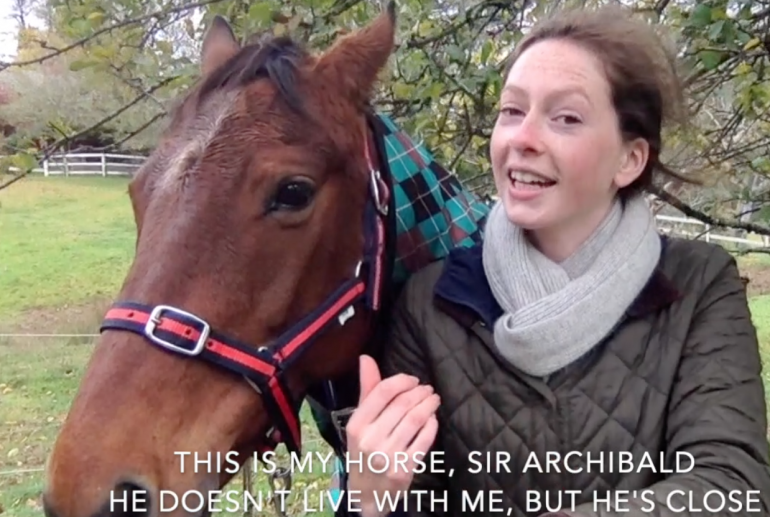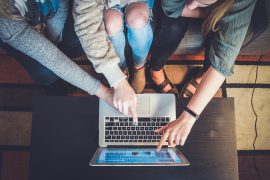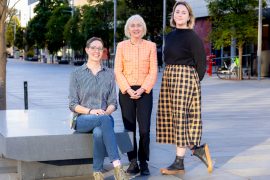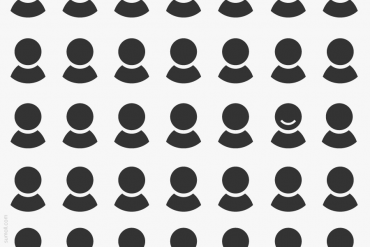Dr Nesrine Basheer joined the School of Languages and Culture in 2015, and hasn’t looked back. With a PhD in Arabic Linguistics, her passion for (and research in) language pedagogy has informed her teaching practice. Adopting a blended learning approach to teaching, she’s used to seeing students thrive and was well placed to transition into fully online mode in March 2020.
However, it wasn’t all smooth sailing. In addition to the physical adjustments, the required pace of change challenged her to seriously rethink learning ‘spaces’, cohort engagement as well as some entrenched approaches to language assessment. Captured below are some personal reflections on teaching through Covid-19, and some advice for others.
How have you changed your teaching style with the transition to online learning?
Flexibility has been key in adjusting my teaching process and practices during Covid-19. In a language teaching context, students are very familiar with learning in pairs. However, it quickly became apparent that online, students prefer working in groups of 3 or 4. I have had to structure more time and ‘space’ for group activities in response to this student-led preference for online group work including a few extra minutes for ‘chit-chat’ before engaging in tasks, which the students really enjoy.
Allowing more time for social exchange has been critical to maintaining, and in some cases improving, the student experience of learning online. In my small classes, I make time to greet and check-in with all students, and in some cases ask after their pets too. It’s way better than the silent response [in the physical classroom] to the question: “how is everyone today?”. I also don’t enable automatic recording on Zoom; following greetings, I explicitly alert people when the record button will be pressed. I believe this signals and supports a positive transition into ‘learning mode’.
I think that ‘allowing students in’ has been another positive enabler in successfully transitioning to online. I purposefully set up my home for teaching, for example: behind me, I have this colourful wall hanging next to my family photos. Early in the shift to online classes, I introduced my whole family to my students… it’s the human factor which we all need now, whereas there was no context for this in face to face. Hospitality if the fabric of my Egyptian culture, I invite people in, and treat them as guests; for this reason I don’t Zoom backgrounds, as they are just too impersonal for me.
Can you give a teaching tip to a colleague who is looking to implement something similar?
Assessment choice has emerged to be one of the biggest challenges to moving education online. In planning for the transition, I was forced to ask myself: can I modify the assessment to measure the same outcomes while adopting a more authentic approach? I chose to convert two quizzes into video assessments.
I asked my students to create one-and-a-half minute YouTube videos, to share information about themselves and their families, while speaking Arabic. The results were amazing and students reported the format was less stressful than in-class quizzes, because they felt like they were better able to prepare. One of my students, Olivia has given me permission to share her assessment below.
Olivia’s feedback: “Sir Archibald enjoyed his cameo performance so much so, that he revealed he could talk… Who knew! 😂” and “It was an enjoyable assessment and it was nice to get creative.”
I never would have thought to change the ‘pen and paper’ task into a video assessment… The new video assessment (targeting standard Arabic) complements the end-of-semester pair skits that students conduct in the spoken variety. Notwithstanding the challenge of revising the rubric in Canvas with very little time, I would recommend that my colleagues consider incorporating this type of assessment.
What non-work activities have helped you since the Covid-19 lockdowns started?
You could call me an amateur clarinet player. Pre Covid-19, I had single 30-minute lessons each week, but never found enough time to practice. Since Covid-19, I’ve structured 10-15 minutes per day to practice, and meet-up online with a community of musicians every Sunday to share and play music. I like the modularity that comes with routine; it helps when so many other things are out of control.
Impacting so many people, the loss of control extends to travel. I would usually travel twice per year to see my family in Egypt, but that is not possible now. I have supported my sense of wellbeing by keeping informed, and listening to podcasts. One podcast had a psycologist taking about perspective and consciousness. It reminded me to be grateful for the 8 hours of teaching I have per week; regular contact with my students has saved me in many ways.





